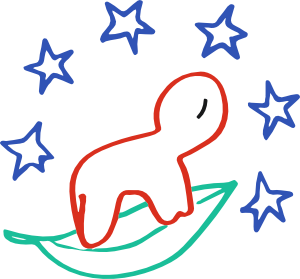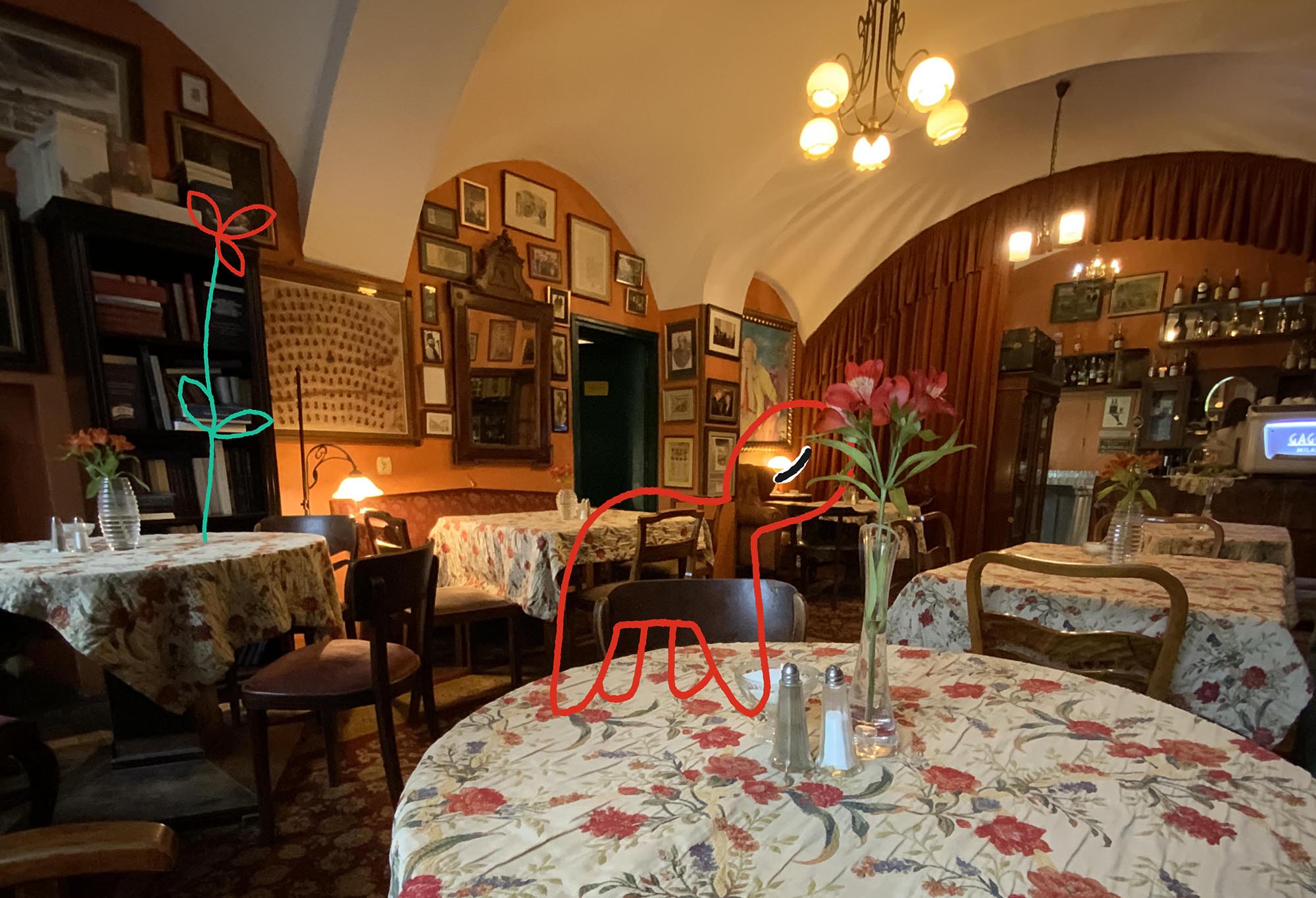Again in Krakow, Poland – October 2023
Moment and memory: 26 October, Austeria, Krakow
Kraków. The city is in transition with me. I look out of the window of the tram and recognise a street I have already passed. But it is still an uncertain feeling, a fleeting fabric, any small gust of wind could carry it away.
It’s not the first time I’ve been here, and I notice small changes in everyday life. A new law regulates what shops can sell at night. Nine months ago, it was different, I remember. People in Krakow are reluctantly getting used to it.
For me, the city is no longer a monolith, a uniform and alien entity devoid of history. I am already somewhat absorbed, like sun cream. I don’t feel part of it yet. I don’t recognise anybody. I don’t get greeted by anyone. I don’t understand the language. And yet, a sense of belonging creeps into my consciousness.
Like a rhythm I have already danced to. It is not possible to remember this state. It is life that cannot be grasped in retrospect. I can only write it while it is. This is the feeling that accompanies me in my travel writing. I have to capture it now; I can’t write it down and process it later. It was during my second trip to Krakow that I became most aware of this. When Europe’s history suddenly started to shift.
On 23 February 2022, Russia had still widely denied that it wanted to attack Ukraine again. But on 24 February, they did. I was on my way to Krakow at the time. I felt that the change that had gripped the world had also thrown me off balance. That it was taking my future and my own path out of my hands. I knew I would get used to it in some way. After a short time, the whirling leaves would sink back to the ground. As if they were just a new humus layer.
But in the first moment, one world collapsed, and a new one began to emerge. I felt I had to write about it now because if I wrote about it later, it would only be a reflection of the newly created reality. I would be aware of many things that, in the past moment, had been incalculably overwhelming.
In this way, the travel texts are like islands, like logbook entries of a ship that always docks anew at the moment. The entries in the log book carry on from one another, but they are not from one state of mind. Each of these journeys changes me. And I record these changes. The transformation, the difference between how I arrive and how I depart, is the thread I am looking for. I want to grasp this red thread on my journeys. I want to feel the changing dissonance between myself and the world I encounter. No, not the dissonance, but the sound.
A demand of civil society
28 October, Book Fair
At the book fair in Krakow. It is very busy here. A lot of young people in Poland are interested in printed books. What a crowd.
Is this a civil society that has just abandoned its passivity? In the last parliamentary elections on 15 October, 74.4% of the population voted. This is far more than anyone could have expected. 11% more than in the first free parliamentary elections in 1989.
The Law and Justice Party (PiS) has been in power in Poland for eight years. Its opponents accuse it of dismantling Poland’s liberal democratic system and of nepotism. In its election campaign, PiS played on people’s fears. Its issues were migration, Russia, the EU, Germany and the demonised figure of Donald Tusk, the leader of the main opposition party, KO, the Civic Forum.
Civil society responded to fear with a declaration of hope for the future. 500,000 people took part in the opposition „March of Freedom“ in Warsaw on 4 June, and one million in the „March of a Million Hearts“ in Warsaw on 1 October. It was a demand to the politicians. However, it was also a promise that was kept on 15 October with a high voter turnout.
The period after the election and before the formation of the government
28 October, Klezmer Hois
Will Tusk’s KO, the New Left, and the two Third Way parties be able to agree on a coalition? Do they have more in common than the common goal of dismissing the PiS government? If so, a new government might actually be possible now.
On 12 November, President Andrzej Duda (PiS) will propose a candidate for prime minister to the new Sejm. Either Mateusz Morawiecki for the PiS or Donald Tusk for the Civic Forum. Tusk currently has the best chance of winning a majority, but the PiS will try to split the opposition. If Duda’s candidate fails to win a majority, the other candidate can try his luck two weeks later. If that also fails, new elections will be called.
That would be fatal because time is running out. If Donald Tusk comes to power, he wants to revise laws passed by the PiS government that contradict EU rules. This would free up large sums of EU money for Poland. I hear a figure: 54 billion euros. Donald Tusk went to Brussels immediately after the election. He knows the workings of the EU better than almost anyone. The EU institutions would probably accommodate a new Polish government as much as possible. Whether President Duda will support or obstruct Tusk remains to be seen.
Once again: the demand of civil society
29 October, Kazimierz
Many small initiatives at the local and regional levels were important for the high turnout in this parliamentary election. Polish civil society mobilised itself to get involved. It has forbidden itself to resign. The election was decided by groups of voters that had previously included many non-voters: young people, women, and Poles living abroad. People who wanted to make a difference, who went to great lengths and waited for hours at polling stations. I hope that European civil society will see the Polish example and adopt it.
Interlude: three Poles and one German
29 October, square in Kazimierz
I’m sitting on a bench in a small square in the Kazimierz neighbourhood, writing this report. Three Poles with beer bottles join me, maintaining a slightly drunken politeness. One of them, on hearing that I’m German, asks me if I have any refugees in sight. „No,“ I say – „and? Do you like it?
Then they tell me what it’s like in Germany. How scared we all must be and how horrible we find it, all the Arabs and southern Europeans who don’t want to work and live off our taxes. Here in Poland, everyone wants to work. It’s clear that I like it better here! I say I really like it in Poland, but I wouldn’t be so afraid on the street in Germany. No, not even for my daughter. The three of them are astonished.
Then they ask why we in Germany want to kick the Americans out of Europe. But they already know the answer: if the Americans were gone, we Germans would negotiate with the Russians and divide Poland among ourselves. That’s for sure. The three of them understand that it’s the laws of economics and power.
But they try to make me understand that it would also be advantageous for Germany if the Americans stayed. If the US stayed in Europe, we Germans wouldn’t get half of Poland, but we wouldn’t have to produce heaps of weapons to end the chaos in Europe. Without the Americans it would be like this. All the Europeans would fall over each other.
I say that Germany doesn’t want to take over Poland, I’ve never heard that before. But they don’t believe me. I’m just a good guy; I wouldn’t know what a brutal place the world is. I studied art? Oh well. Do I like women? I give them the green light. If I were gay, I think I would have done the same. The three of them are beginning to interest me; I don’t want to be a threat.
I tell them a bit about Polish history, after they tell me I don’t know anything about it. From now on we were even friendlier. The three of them have studied foreign trade. That’s why they have a better idea of Germany’s wishes than I do. The EU, they tell me, doesn’t really exist. Instead, Berlin, as the strongest economy in Europe, has invented „the EU“ and is making it dance like a hand puppet. So that the others can follow. This can also be seen in the fact that Germany has now dictated how the Poles must vote. You get money with Tusk, not with PiS. The three understand that. It’s a strongman’s game. They like Germany.
I say that somewhere in Germany, there could be exactly this place, with four guys sitting on a public bench, drinking beer and complaining that their country (in this case, Germany) is being bullied by the EU in Brussels. They look at me in amazement. Not because they believe me. They think I’m a wonderful fantasist. I have a few more attempts to tell them that Germany has no desire for ownership of Poland and that the EU has a great deal of independence from Germany. They are happy with my behavior; they think I’m funny. They don’t believe a word I say.
We talk a bit more about how important it is to be critical of information from the media and the internet. We agree on that! I get the impression that the three of them would give themselves high marks on this point. But not me. I move on. It was somehow nice – but without us being able to convince each other of anything.

